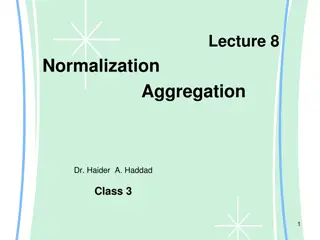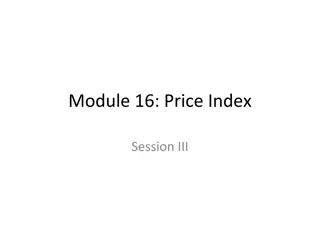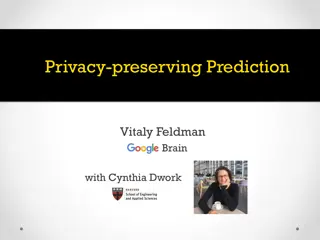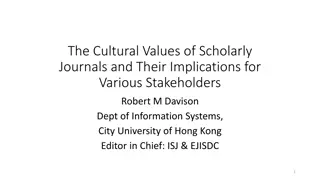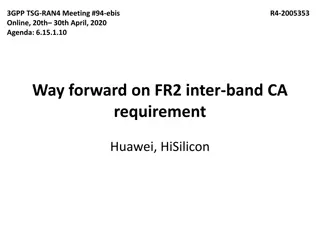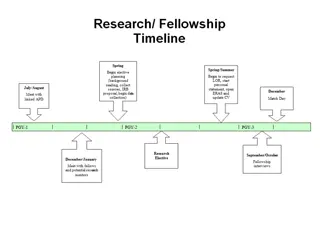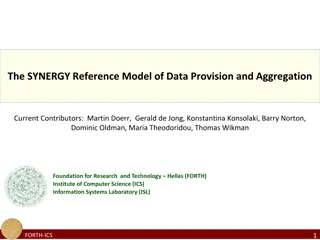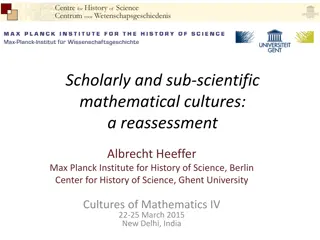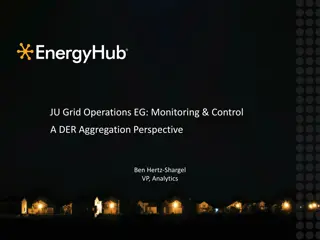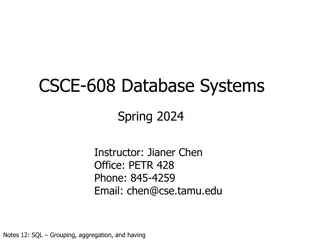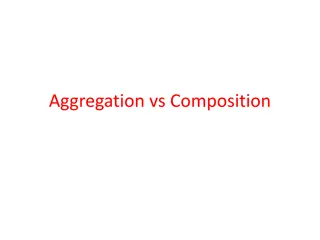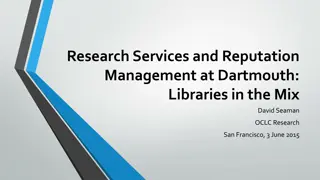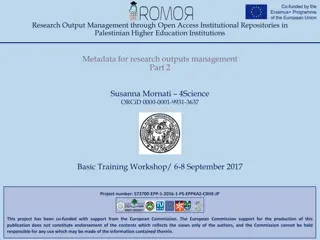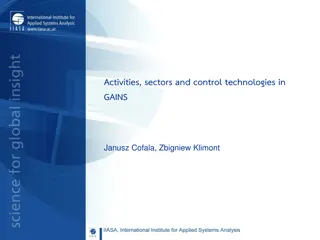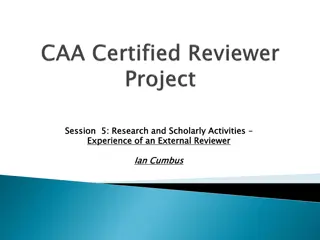Advancing Scholarly Research Through Data Aggregation and Infrastructure Services
Enabling the creation of new scientific knowledge and discoveries, data aggregation platforms like CORE play a pivotal role in connecting repositories and facilitating structured data harvesting. These platforms contribute to the knowledge graph, support text and data mining, and offer valuable services such as data synchronization, recommendation engines, and validation tools for research repositories.
Download Presentation

Please find below an Image/Link to download the presentation.
The content on the website is provided AS IS for your information and personal use only. It may not be sold, licensed, or shared on other websites without obtaining consent from the author.If you encounter any issues during the download, it is possible that the publisher has removed the file from their server.
You are allowed to download the files provided on this website for personal or commercial use, subject to the condition that they are used lawfully. All files are the property of their respective owners.
The content on the website is provided AS IS for your information and personal use only. It may not be sold, licensed, or shared on other websites without obtaining consent from the author.
E N D
Presentation Transcript
X T H E U N I V E R S I T Y O F S T R AT H C LY D E Repository aggregation : Repository aggregation : CORE as essential open scholarly CORE as essential open scholarly infrastructure & service platform infrastructure & service platform Dr George Macgregor a,b, c a Scholarly Publications & Research Data (SPRD), IS Information Management, University of Strathclyde b iSchool, Department of Computer & Information Sciences, University of Strathclyde c CORE Ambassador https://purl.org/g3om4c | @g3om4c | @g3om4c@mastodon.social | 0000-0002-8482-3973 This deck available: https://strathprints.strath.ac.uk/80959/ Thursday 09 June 2022
X T H E U N I V E R S I T Y O F S T R AT H C LY D E Quick background The forgotten origin of repositories ? OAI-PMH and distributed global repository network Harvesting structured data and beyond Don Swanson Don Johnson Harvesters = Aggregators Aggregation brings huge scientific benefits & opportunities Contributing to the knowledge graph and knowledge commons Enabling creation of new scientific knowledge and discoveries Big data = patterns OA beyond human readable access CORE, BASE, OpenAIRE, OAIster CORE Commitment to the Principles of Open Scholarly Infrastructure (POSI)
X T H E U N I V E R S I T Y O F S T R AT H C LY D E Knoth, P. et al. (2017) CORE: Connecting Repositories, OA17 Workshop,CERN, Geneva. https://blog.core.ac.uk/2011/06/17/core-oai7-poster/
X T H E U N I V E R S I T Y O F S T R AT H C LY D E Data aggregation enables \ Data \ \ Discovery \ CORE dataset: download millions of outputs for TDM (largest dataset ) CORE Discovery: Unpaywall but using CORE dataset (Mozilla; Chrome & Chromium; Opera) CORE API: harness platform to perform TDM or build novel applications CORE Recommender: Recommendation engine for repos FastSync : Does what it says on the tin! OAI resolver: New! Does what it says on the tin - again! And searchcirca 250 million items Repository Dashboard: Maintain, analyse & validate your repository data within CORE
X T H E U N I V E R S I T Y O F S T R AT H C LY D E CORE Recommender: Strathprints
X T H E U N I V E R S I T Y O F S T R AT H C LY D E Critical open scholarly infrastructure CORE = essential open scholarly infrastructure Aligns with the raison d' tre of the repository cooperative & network Repositories are not islands Importance of the network effect ; More repositories delivering more content = greater knowledge creation This is *critical* But also delivers greater platform potential; Better recommendations, more paywalls thwarted, new services built on the platform in future CORE sustainability & the future
X T H E U N I V E R S I T Y O F S T R AT H C LY D E Further reading \ CORE \ https://core.ac.uk/ \ CORE API \ https://core.ac.uk/services/api \ CORE Dataset \ https://core.ac.uk/services/dataset Introducing CORE (2019) [video]




